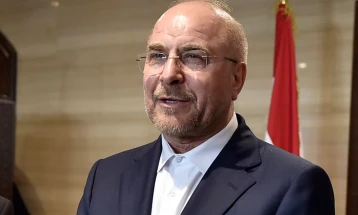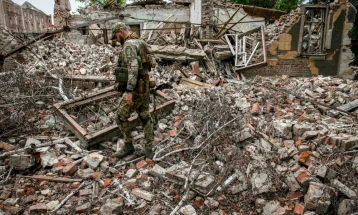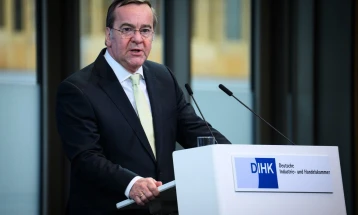Protests continue as French pension reform gets legal green light
- French President Emmanuel Macron's deeply divisive pension reform can come into force after the Constitutional Council declared the plan to gradually raise the retirement age from 62 to 64 years essentially in conformity with the constitution on Friday.
- Post By Magdalena Reed
- 11:37, 15 April, 2023

Paris, 15 April 2023 (dpa/MIA) — French President Emmanuel Macron's deeply divisive pension reform can come into force after the Constitutional Council declared the plan to gradually raise the retirement age from 62 to 64 years essentially in conformity with the constitution on Friday.
Protests broke out again in several cities on Friday evening after the decision.
In Paris, people gathered in front of the city hall. In Nice, demonstrators marched along the waterfront. There had already been rallies and blockades during the day.
Demonstrations are also expected on Saturday, while the trade unions called for new protest marches on May 1.
A referendum, which opponents of the reform had hoped for, was declared inadmissible by the constitutional authorities.
Broadcaster BFMTV reported from within the president's inner circle that Macron would bring the reform into force within days. Labour Minister Olivier Dussopt announced that it would take effect on Sept. 1.
For Macron, it is a success in the months-long dispute over the reform, but France has been roiled by civil unrest for months over the contested pension reform, resulting in clashes, occasional violence, fires, the postponed collection of rubbish and even the cancellation of a visit by Britain's King Charles III.
Macron and the centre-right government want to prevent a looming hole in the pension fund with the reform.
Currently, the retirement age in France is 62, but in fact, retirement starts later on average: those who have not paid in long enough for a full pension work longer. At 67, a pension is available without deductions, regardless of the length of time paid in – and this is to remain the case.
The plan is extremely controversial in France. The trade unions consider it brutal and unfair.
Since the beginning of the year, hundreds of thousands of people have been striking and protesting against the reform. The government and the opposition have also been engaged in fierce exchanges in parliament.
To avoid a looming defeat, the government decided at the last minute to push the reform through the National Assembly without a final vote.
Left-wing and right-wing nationalist deputies, left-wing senators and also Prime Minister Élisabeth Borne subsequently called for the Constitutional Council to decide on the reform.
The deputies complained, among other things, that the government packaged the reform in a budget text and shortened the debating time in parliament, but the supreme guardians of the French constitution saw no problem in this in Friday's ruling.
On the other hand, they rejected a requirement that larger companies compile a compulsory list of older employees and a special contract for older workers because they had nothing to do with the government's finances.
Despite his success, Macron does not look like a brilliant winner. The president and his centre-right government are shaken by the tough fight over the reform. Prime Minister Borne wrote cautiously: "Tonight there are neither victors nor vanquished."
Macron now wants to open a new chapter as soon as possible – but new protests could throw a spanner in the works. No one expects the opponents of the reform to admit defeat quickly.
Even if the trade unions choose to respect the decision of the Constitutional Council, the protests could continue.
It is conceivable that there could now be more spontaneous actions – possibly again with riots and violence. Some more radical groups could also continue their strikes.
A referendum process to cap the retirement age at 62 was rejected by the Constitutional Council.
A demonstration started at noon in Paris ahead of the decision and further protests were planned in other cities nationwide. Roads were blocked across the country.
In the northern Ardennes region, trade union members blocked a highway into Belgium on Friday, the France 3 broadcaster reported. Cars were allowed through, while trucks were held up. Photos showed piles of burning car tyres on the road.
Roadblocks were also in place in the eastern city of Strasbourg, where a food company's cold storage warehouse was blocked, according to media reports.
In Rouen, north-west of Paris, a main access road into the city was blocked. Demonstrators occupied a motorway toll booth near Bordeaux and let cars through for free.
In the southern city of Toulouse, the CGT trade union caused a power cut in a district where a national research centre is located.
The president almost self-sacrificingly declared that the reform was in the interest of the country and that he would accept unpopularity. Nevertheless, he now hopes to quickly put the troublesome pension issue behind him.
He is expected to address the population next week and then, with a series of trips around the country, to do what he avoided in the fight over the reform: make his presence felt. Macron has kept a low profile in the pension dispute. He even travelled abroad during many key moments, which some interpreted and resented as arrogance.







